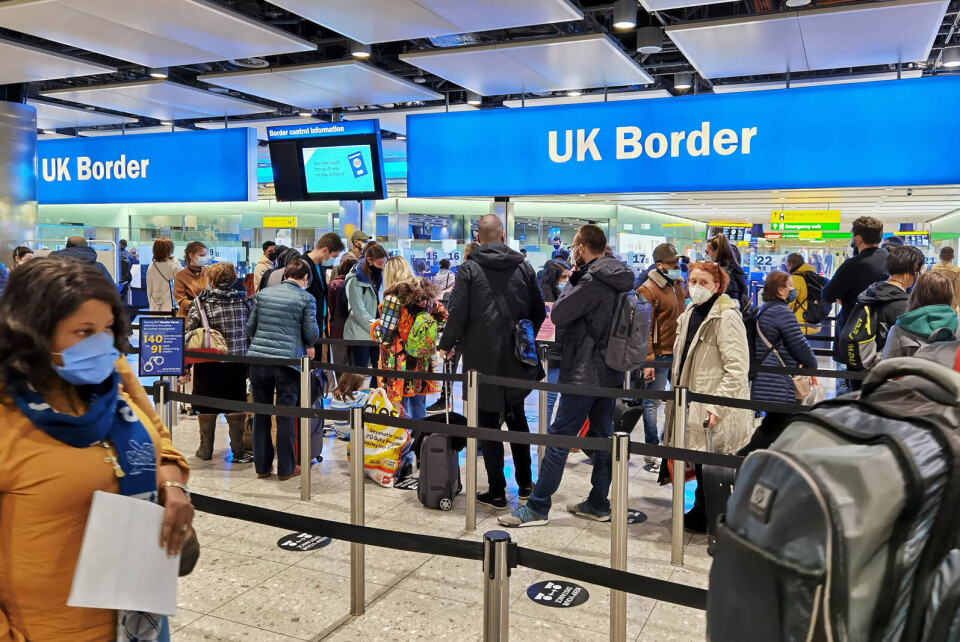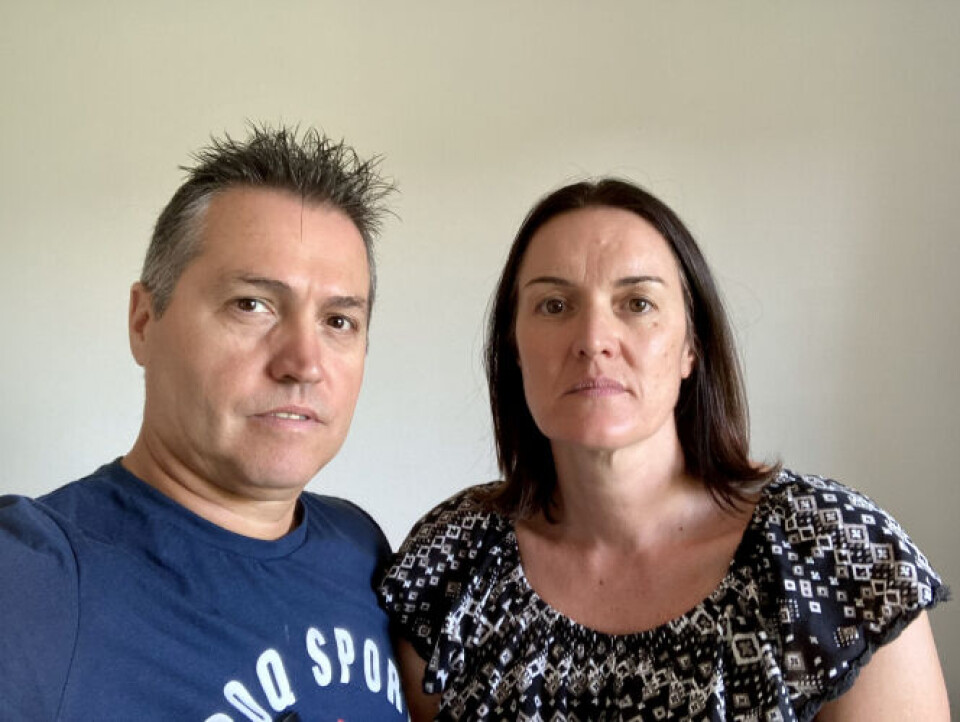-
‘No evidence third party involved’ in deaths of British couple in south-west France
Investigators update The Connexion on Dawn Kerr and Andrew Searle case
-
MPs push to remove low emission zones in France
Critics say the zones penalise lower-income households, but the government has warned abolishing them could cost billions
-
Trump tariffs: Americans in France hit by dollar drop
Europe has said the tariffs will cause the economy to ‘massively suffer’ as France plans retaliation
Fears over UK’s challenging mixed nationality rules following Brexit
Ordinary British immigration rules now apply when a Briton moves back to the UK with family members who are not UK citizens, causing worry for mixed-nationality families

Mixed-nationality families have spoken of their worries as the deadline approaches for visas and means tests being imposed on those wanting to move from the EU to the UK.
Campaigners for Britons abroad have asked the Home Office to allow a longer grace period, outlining difficulties already for those seeking to go back before the deadline.
Pre-Brexit, if a Briton moved to France, they could later return to the UK with a French spouse without formalities.
This is no longer the case due to the end of EU free movement for Britons.
Now, ordinary British immigration rules will apply when a Briton moves back to the UK with family members who are not UK citizens.
Attempts were made, supported by the British in Europe campaign group (BiE), to remove this requirement for Britons who moved abroad before Brexit.
A bill was backed by the Lords but blocked by MPs
Only a grace period until March 29, 2022, was agreed, during which these families may in theory freely move back to the UK, although certain formalities (applying for a ‘family permit’) are still required.
A government minister said this was enough as it was “three years from when we were originally supposed to leave the EU”.
BiE co-chair Jane Golding, a British lawyer living in Germany, said in practice there had been only a 15-month grace period since the UK fully left the EU. What is more, she said, “the process to benefit from the grace period has not been clear and people needed clarity from the start. Now time is running down.”
It had not been obvious, for example, whether applying for a family permit from outside the UK was essential for EU citizen family members as well as non- EU citizens, or whether the former could simply visit the UK and apply directly for ‘settled status’ to remain in the country, once there.
After several exchanges with the Home Office, she said it appears this is not possible, but there was no “absolute clarity”.
It is also still unclear whether people are obliged to physically move back to the UK by the grace period deadline as well as having applied for the permit by then, Ms Golding said.
In addition, she said there have been “substantial backlogs”, with some people waiting seven months for applications for the first stage ‘family permit’ to be processed. “We have been told that there will be some flexibility in the system due to Covid but it is now six months until the rules change – it remains to be seen how that will be applied after the March 29, 2022, deadline.”
Currently, non-British citizens can apply for an EU Settlement Scheme family permit, valid for six months
The permit is to live and work temporarily in the UK with their British family member.
This is for spouses, civil or long-term partners, non-British children under 21 and dependent adult relatives where the relationship existed before Brexit (ie. February 1, 2020).
They have until March 29, 2022, to apply for this permit.
If the relationship started between February 1 and December 31, 2020, they must give evidence as to why they did not return to the UK before the end of the transition period. People cannot benefit if their relationship began in 2021.
Documents – translated, if not in English – are required, proving the relationship and that you lived together with the EU as your home, as well as evidence that the British family member was working, studying or self-sufficient in the EU.
Once in the UK, the EU citizen may then, within 90 days, apply for ‘settled status’ to remain in the UK, similar to applying for a Withdrawal Agreement residency card in France.
This will initially be ‘pre-settled status’, with eligibility for ‘permanent’ settled status after five years.
In future, under standard immigration rules that already apply to Britons moving back with a non-EU nationality partner, the Briton will have to move back to the UK and then sponsor their spouse for a ‘family visa’ to join them.
Alternatively, if the person has an eligible job offer, which would have to provide a salary over a certain level, they could apply for a work visa instead.
A condition of the family visa is that the couple can show an income of at least £18,600 (€21,690), plus £3,800 for a first dependent non-British child and £2,400 for each extra child.
Usually, the foreign spouse’s own incomes are not taken into account, unless he or she has already been earning from a job in the UK for at least six months.
Savings, including those of the spouse, can help towards the test if they are over £16,000.
A family needs £16,000 plus £2.50 for every £1 that their income is below the threshold.
There is a visa fee for the partner of £1,523, plus the same again for additional dependants (or £3,250 for application for an adult who will need to be looked after by their relative).
A person can stay for two years and nine months on this visa, after which they would need to apply to extend the stay, with the same conditions.
From five years of residency, it is possible to apply for indefinite leave to remain.
Couple fear they may not be able to return together

English teacher Tracey Maurin, 45, married her 50-year-old French engineer husband Stéphane 20 years ago in the UK and their two daughters were born there.
Fifteen years ago, they moved to live in the Var. To be closer to family, including Ms Maurin’s parents, the couple plan to move to the UK next summer – after the ‘grace period’ – because their younger daughter, 17, will be taking her Bac exam.
“The big process and huge fees to go down the visa route is making things difficult and we may have to be parted to move back,” she said.
“We are deeply concerned that our situation, and freedom to move back to my home country, is in jeopardy.
“No British citizen should feel locked out of their own country or feel punished for marrying a non-Brit.”
She said it is a “disgrace” to set the grace period just over a year after Brexit fully began. “How can people be expected to drop everything, resign from or find new jobs, give up schooling and sell houses to meet such a short deadline?”
She added: “In future, I would have to move back first and be earning, and my husband would apply – who knows how long it would take? We could be separated for months. The other option is to have around £62,000 in savings – and who does? – but he would still have to apply outside the country. Before, you just packed your bags and moved.
“People say it’s been like that for non- EU spouses for years, but they would have made their decisions based on knowing that.”
She added that she had struggled to understand the current family permit rules. “I contacted the scheme twice by email and got different replies.”
She understands you have to return by the deadline, but said she might apply anyway so as to be in the system in case this is extended.
Couple worried they will not meet the means test
A 57-year-old German woman, who is married to a Briton and works on a self-employed basis in the equestrian industry, said she is worried the couple would not meet the means test if family circumstances mean they need to move back to the UK. The reader, who asked not to be named, moved with her husband, 61, to France in 2017, having lived, worked and raised two children in the UK after she relocated there in 1988.
“The means test worries me as we get by on a modest monthly amount,” she said. “I feel cheated and dumped, having paid taxes for 29 years in the UK.”
She said they do not have concrete plans to move back, but want to have the option.
“We have adult children in the UK of the age for getting married, and elderly parents. They may need our help.”
She added: “I originally moved to the UK before EU free movement and remember the days of applying to the Home Office and queuing up to be allowed to remain. It was a lengthy and painful process. That then changed – but we’re now back to square one.”
Related stories
A guide to the temporary long-stay visa for France and how to apply
























